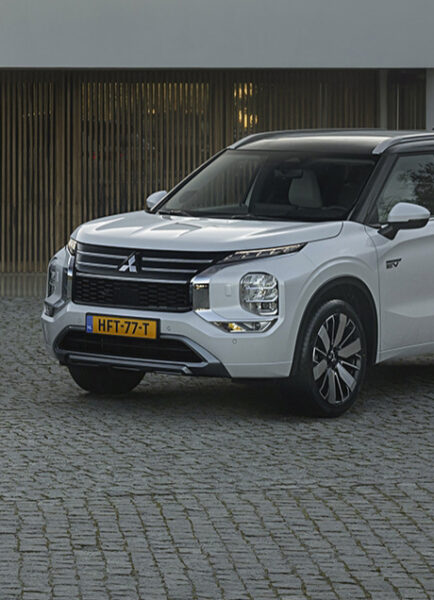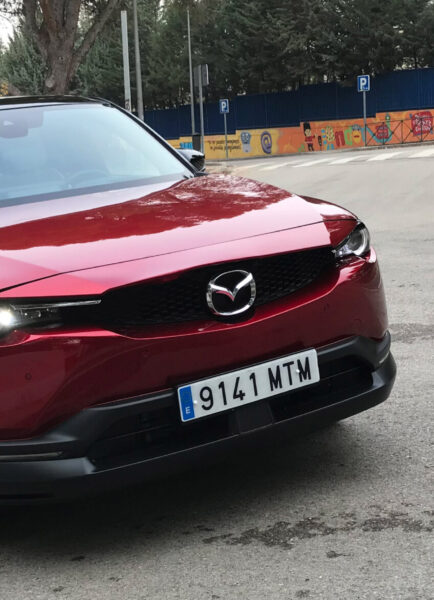THE LAMBORGHINI HURACÁN
Sant’Agata Bolognese/Los Angeles, CA, 15 November 2016 – Automobili Lamborghini presents the Lamborghini Huracán rear-wheel drive Spyder, combining the lifestyle appeal of the convertible with the pure on-road experience of the Huracán’s rear-wheel drive technologies.
“The rear-wheel drive Spyder enlargesthe Huracán family’s core product range,” says Automobili Lamborghini Chairman and Chief Executive Officer Stefano Domenicali. “It offers the lifestyle appeal of open-air motoring with the pure thrill of rear-wheel drive engineering. This is a Lamborghini for those with a passion for life and the purest driving experience on the open road. It’s also a Huracán for those entering the Lamborghini family, wanting a true Spyder experience without compromising on the performance and dynamic handling of a rear-wheel drive car.”
The rear-wheel drive Huracán Spyder features a newly designed front and rear with a dynamic but more aggressive look distinguishing it from the four-wheel drive version. Its naturally aspirated V10 5.2 l engine sends 426 kW / 580 hp to the rear axle, with its dry weight of just 1,509 kg providing a weight-to-power ratio of 2.6 kg/hp. Acceleration from 0-100 km/h is achieved in 3.6 seconds with a top speed of 319 km/h.
The rear-wheel drive Spyder will be available in markets worldwide from January 2017, priced between the two and four-wheel drive coupe models and completing the core Huracán product range.
Soft-top design for a true Spyder
The front and rear of the car have been redesigned, with its dynamic good looks accented by the large front air intakes that direct cooling air and headwind to increase down pressure on the front axle. Pirelli PZero tires, exclusively developed for the rear-wheel drive Huracán, sit on 19” Kari rims. Specially contoured steel brakes with aluminum brake disc pots assist in weight reduction and improved cooling. Inside, the cockpit features the latest Lamborghini Infotainment System II with a 12.3” hi-res TFT instrument panel.
The latest addition to the Huracán family adopts the soft-top solution of a true Spyder, distinguishing the convertible from its coupe sibling through a unique profile, with roof both up and down. Opening and closing in just 17 seconds at speeds of up to 50 km/h, the lightweight soft top is efficiently stowed to maintain the Spyder’s perfect center of gravity and highlight the dynamic design of the open car.
With the roof down, two distinctive fins rise out of the folding roof-casing to perfectly define the unique lines of the open car. Accenting the Huracán Spyder’s low, powerful appearance, the rear fins start at the seatbacks and continue the roof line to the rear, creating the Spyder’s flowing profile. The two fins contribute to optimizing airflow through the engine compartment, which is covered by a slatted engine bonnet specific to the Spyder.
An integrated duct reduces turbulence in the headroom during open top driving. With soft top both up and down the driver can also electronically open the rear window, which functions as a windshield when up and highlights the V10 engine’s unique sound when down. Two removable lateral windguards dampen lateral aerodynamic noise in the cabin, permitting conversations even at high speeds.
Engineered for rear-wheel drive performance
As it does in the rear-wheel drive Huracán coupe, the Spyder’s V10 5.2 l naturally aspirated, mid-mounted engine provides a maximum 426 kW (580 hp) power output at 8,000 rpm and 540 Nm of torque at 6,500 rpm, with 75% of torque already available at 1,000 rpm.
Like the coupe, the rear-wheel drive Spyder promises the thrill of two-wheel drive dynamics, roof up or down. Weighing 1,509 kg dry, the rear-wheel drive Huracán Spyder achieves a weight to power ratio of just 2.6 kg/hp. The Huracán’s exceptionally stiff hybrid aluminum and carbon fiber chassis is complemented by springs and anti-roll bars on double wishbone suspension, for two-wheel drive. The power management system of the rear-wheel drive includes a specific steering set-up and recalibrated stability and traction controls, connecting the driver as directly as possible with the road. Weight distribution is biased 40% at the front / 60% at the rear, reducing inertia on the front axle.
The Lamborghini Doppia Frizione (LDF) seven-speed dual clutch architecture ensures the fastest gear changes and includes ‘launch control’ for maximum acceleration from a standing start. The electronic power steering and optional Lamborghini Dynamic Steering (LDS) are tuned specifically for the rear-wheel drive Spyder, ensuring maximum agility and control in every driving condition, depending on driving mode and speed.
Rear kinematics heighten the car’s ‘centered’ feeling and the new Spyder features the Lamborghini Piattaforma Inerziale (LPI), the Huracán’s sensor system placed in the center of gravity of the car, tracing all 3D movements. It provides real time information to the optional Magneto Rheological Suspension (MRS), steering and stability control systems: the ESC has been regulated to adapt to all adherence conditions yet emphasize the rear-wheel drive behavior in each driving mode.
The ANIMA (Adaptive Network Intelligent Management: ‘soul’ in Italian) button on the steering wheel allows the driver to adopt different driving modes, calibrated to suit the spirit of the rear-wheel drive model. STRADA for daily use, SPORT for sporty driving fun, and CORSA for maximum track-oriented performance are tuned to provide over-steering characteristics, emphasizing authentic rear-wheel drive behavior.
As in all Huracán models, cylinder deactivation improves engine efficiency, reduces fuel consumption and reduces CO2. When full engine capacity is not required, five of the ten cylinders are temporarily deactivated by switching off one cylinder bank. When the driver accelerates, the system switches back instantaneously to ten-cylinder mode, with the changeover being virtually impossible to detect by the driver.
Technical Data – Lamborghini Huracán Rear-Wheel Drive Spyder
| BODYSHELL AND RUNNING GEAR | |
| Chassis | Hybrid chassis made from aluminum and carbon fiber |
| Bodyshell | Outer skin made from aluminum, and composite material. |
| Suspension | Aluminum double-wishbone suspension |
| Springs and dampers | Steel springs and hydraulic dampers. “MagneRide” electromagnetic damper control available as an option |
| ESC | ESC/ABS characteristics can be adjusted via ANIMA, ESC can be deactivated |
| Brakes | Hydraulic dual-circuit brake system with vacuum brake servo unit, 8-piston calipers at the front, 4-piston calipers at the rear |
| Brake discs | Specially contoured steel discs ventilated and cross-drilled∅ 365 x 34 mm front, ∅ 356 x 32 mm rear |
| Steering | Electromechanical power steering, optional LDS steering with variable ratio |
| Tires (standard) | Pirelli 245/35 R19 (front) – 305/35 R19 (rear) |
| Wheels (standard) | 8.5J x 19» (front) – 11J x 19» (rear) |
| Mirrors | Electrically controlled exterior mirrors |
| Airbags | Full Size dual-stage front airbags Full size lateral airbags |
| ENGINE | |
| Type | Ten-cylinder V, 90°, IDS+MPI dual injection |
| Displacement | 5204 cm3 |
| Bore / stroke | Ø 84,5 mm x 92,8 mm |
| Valve control | Intake and exhaust camshafts with continually variable adjustment |
| Compression | 12.7 : 1 |
| Max. power | 426 kW / 580 hp at 8,000 rpm |
| Max. torque | 540 Nm at 6,500 rpm |
| Emissions class | EURO 6 |
| Exhaust treatment | Four catalysts with lambda regulation |
| Cooling system | Water and oil cooling systems |
| Engine Management | Bosch MED 17 Master Slave |
| Lubrication | Dry sump |
| DRIVETRAIN | |
| Type | Rear-wheel drive |
| Transmission | 7-speed LDF dual-clutch transmission, shift characteristics variable via Drive Select Mode |
| PERFORMANCE | |
| Vmax | 319 km/h |
| 0–100 km/h | 3.6 s |
| 0–200 km/h | 10.4 s |
| DIMENSIONS | |
| Wheelbase | 2,620 mm |
| Length | 4,459 mm |
| Width | 1,924 mm |
| Width (incl. exterior mirrors) | 2,236 mm |
| Height | 1,180 mm |
| Track front | 1,668 mm |
| Track rear | 1,620 mm |
| Turning circle | 11.5 m |
| Weight (dry) | 1,509 kg |
| Weight/power | 2.6 kg/hp |
| Weight Distribution | 40 % (front) – 60 % (rear) |
| CONSUMPTION** | |
| Urban | 17.5 l/100 km |
| Extra-urban | 9.1 l/100 km |
| Combined | 12.1 l/100 km |
| CO2 emissions | 283 g/km |
17-11-2016// Pruebatucoche


















